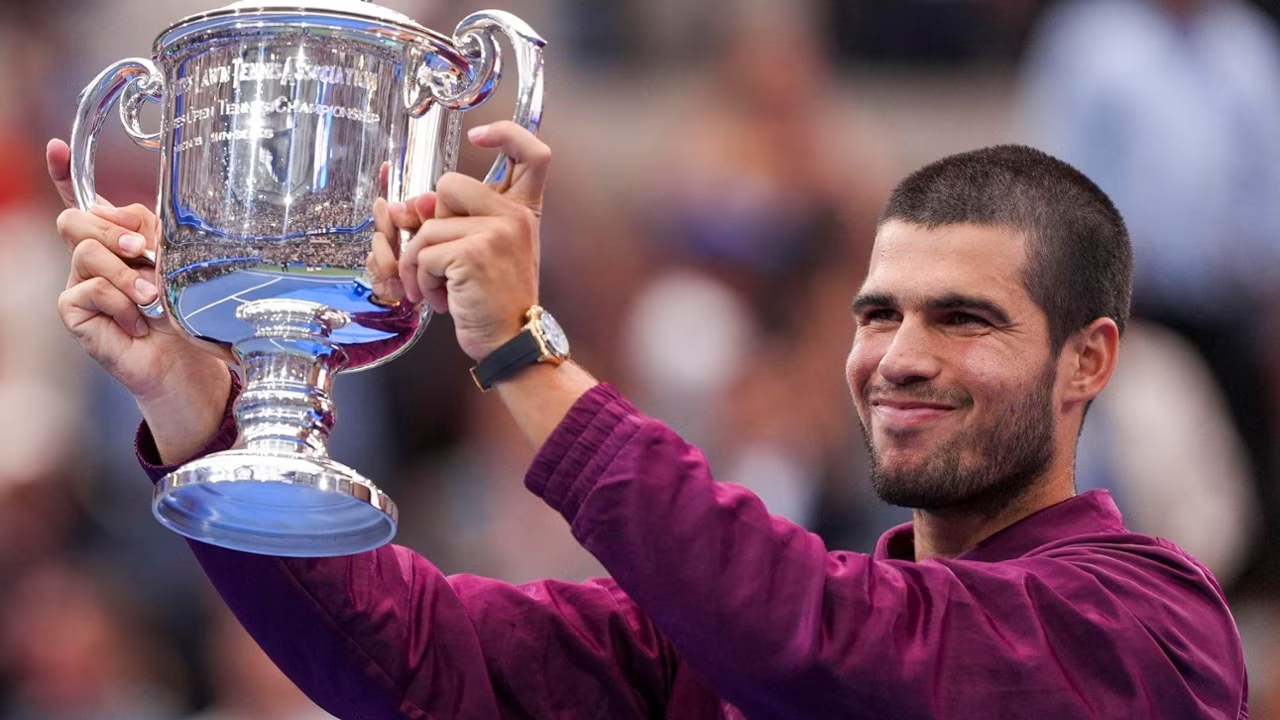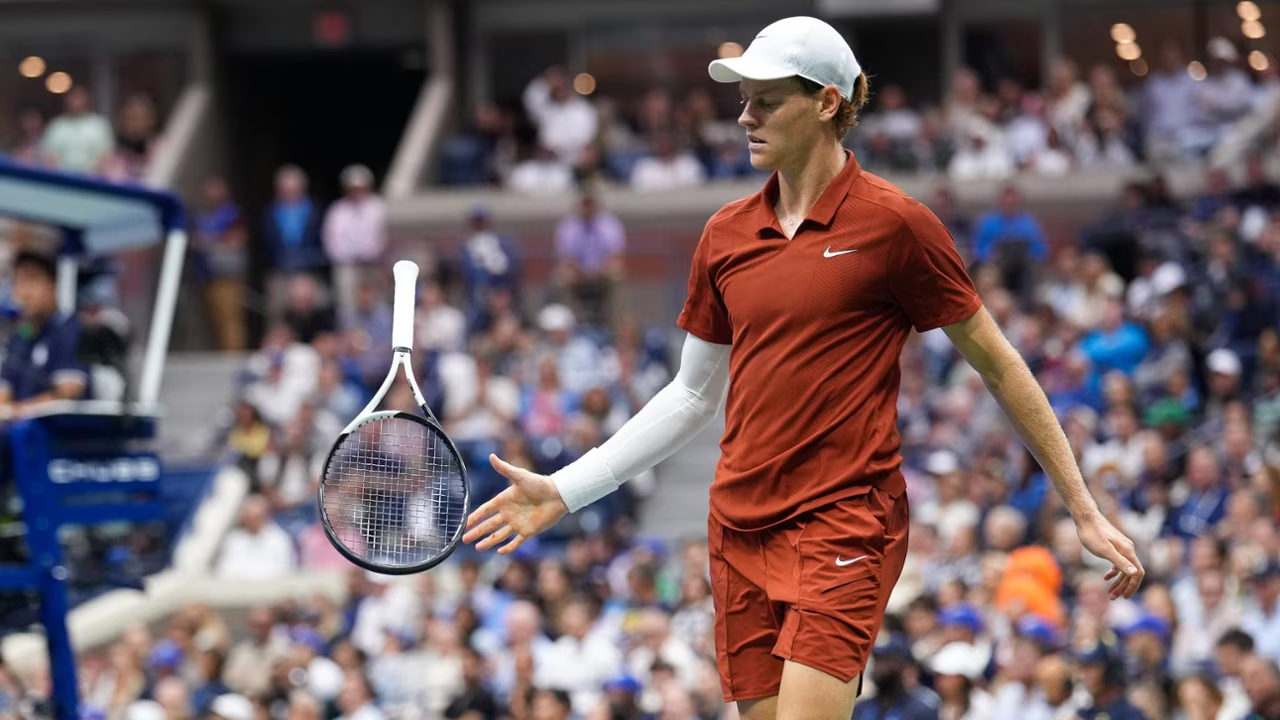
Sunday at New York’s Arthur Ashe Stadium saw a powerful, confident Carlos Alcaraz dismantle his biggest rival and former world No. 1, Jannik Sinner. In a two-hour, 42-minute contest, the Spaniard swept past the Italian in what many will remember as a decidedly one-sided final. Here’s our breakdown of the last Grand Slam of 2025.
In a flawless, sublime performance, Carlos Alcaraz closed out his 2025 season in style, further cementing his place in the hearts of tennis fans for years to come. He arrived in New York carrying momentum from his hard-court triumph in Cincinnati, where he brushed aside opponents before taking the title as Sinner retired in the final. Even there, he looked untouchable. Fast forward to the open weeks of the US Open, and Alcaraz powered through without dropping a set — a statistic that reflects the dominance and razor-sharp focus he brought to the competition. Not even Novak Djokovic could shift that.
The opening set of the Sinner–Alcaraz duel belonged entirely to Carlos. He came out with an aggressiveness that caught Sinner off guard from his very first service game, breaking with blistering pace and consolidating on his own serve. From the outset, Alcaraz displayed his full repertoire, using the drop shot as a weapon while pushing Sinner deep behind the baseline. Both players looked to attack rather than defend, but Alcaraz executed with greater precision and variety. His clean, explosive ball-striking echoed around Arthur Ashe as he broke a second time and closed out the set 6-2, laying down the marker for the rest of the match.
The second set shifted the momentum. It was Sinner’s chance to wipe away the memory of the opener and bring the contest back to level terms — and for a brief moment, it looked as though he might stage a turnaround reminiscent of Alcaraz’s heroics at Roland Garros earlier this year. This time, it was Carlos making the mistakes: balls drifting into the net, first serves faltering, the sharpness of the first set slipping under pressure. Sinner, buoyed by growing confidence and the encouragement of his team, seized the moment. The Italian rode that surge to take the set 6-3.
From that point on, something clicked for Carlos. If he could replicate his first-set intensity, there was little chance Jannik Sinner could keep pace. Alcaraz broke serve twice, never surrendering his own, and soon raced to a 5-0 lead that left Sinner looking scattered. In the third set, Carlos was flying — chasing down every ball, redirecting pace with venom and dragging Sinner wide before finishing ruthlessly at the net. The Spaniard stormed through 6-1, reasserting his dominance.
The fourth set posed the question: could Sinner summon the resolve to push this final into a deciding fifth? Alcaraz never gave him the chance. The set was tighter — the opening game a gruelling deuce that Sinner edged, and at 2-2 both men were holding firm on serve, knowing a single break could tilt the balance. Then came the slip: a double fault from Sinner handed Alcaraz the opening he needed. And when Carlos is flying, such gifts are fatal. He surged ahead 3-2, consolidated and kept his grip until closing the set 6-4 — sealing the championship with an ace. Chapeau.
It must be a bitter reality for Jannik Sinner — a player capable of making almost any opponent look like a novice — to know that one rival consistently holds the upper hand. That rival is Carlos Alcaraz. In 2025 alone, they met five times. Alcaraz claimed four of those battles, with Sinner’s lone victory coming on the grand stage of Wimbledon.

In recent interviews, coaches and former players have praised Sinner as the more consistent and complete of the two. Yet on Sunday, it was a defining trait of Alcaraz — both in his game and his personality — that tipped the balance: versatility and unpredictability. Sinner himself admitted in the press room that he had been the predictable player, while Carlos was exactly the opposite. Something Carlos’ coach, Juan Carlos Ferrero, underlined at the press conference too: Alcaraz is “chameleonic” — able to adapt any part of his game when the moment demands it.
In this rivalry tilted towards Carlos, it is his tennis that deserves praise: a game built on variety and versatility, where talent meets willpower to adjust, learn from mistakes and grow sharper with each passing season. Sinner may be a machine — relentless on and off the court — but Alcaraz is a polyvalent magician, capable of stirring something unique in crowds and fans across the world. Olé, Carlos!



